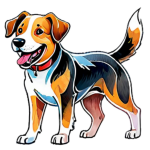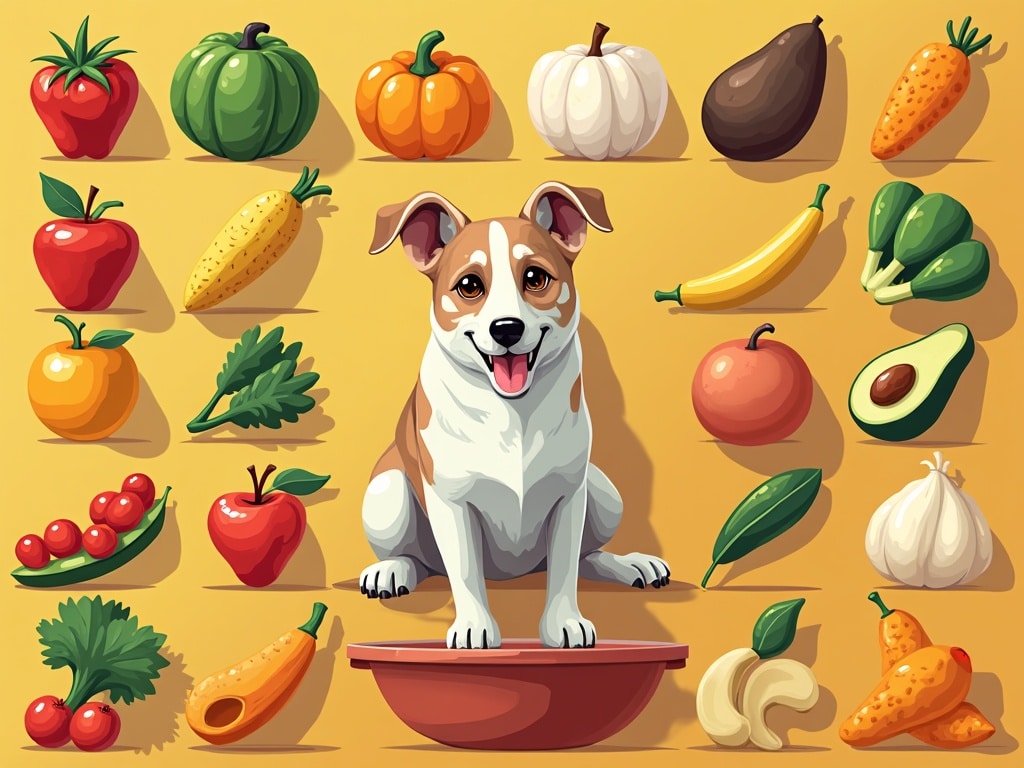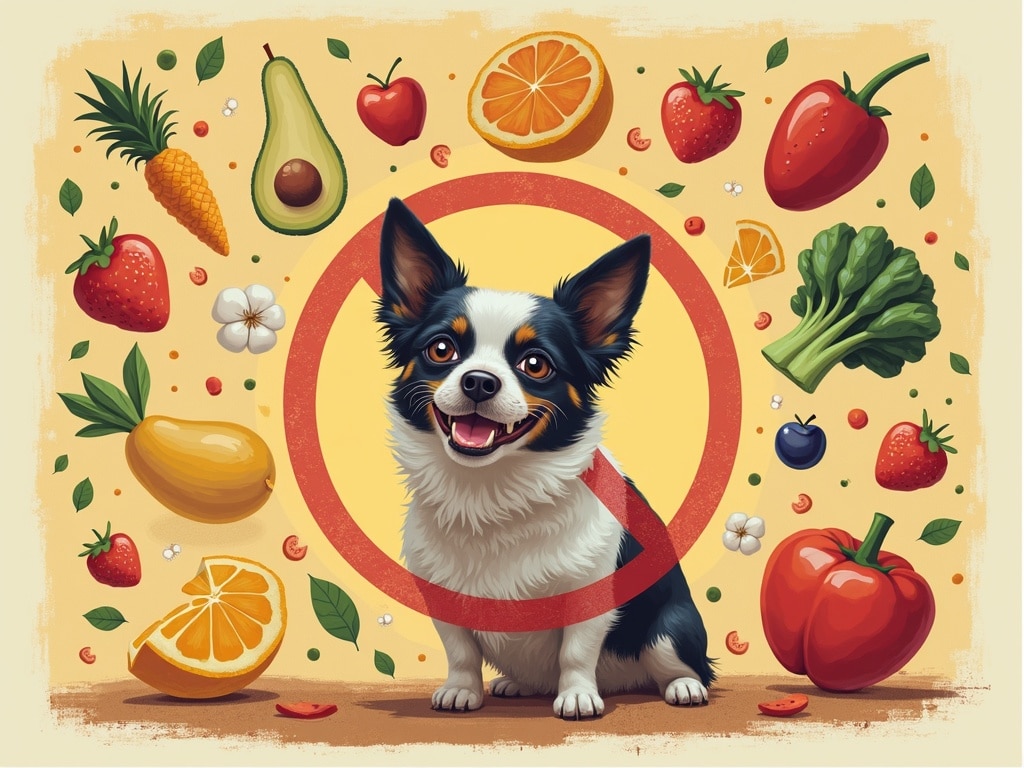Human Foods That Are Toxic to Dogs: A Comprehensive Guide
Imagine sharing a tasty treat with your furry best friend. Their eyes light up, tail wags furiously, and you feel that warm glow of companionship. But what if that seemingly harmless snack could actually be dangerous, even deadly, for your beloved dog? It's a frightening thought, but the truth is that many common human foods are toxic to dogs, and knowing which ones to avoid is crucial for responsible pet ownership.
This guide will walk you through a comprehensive list of human foods that pose a threat to canine health, explaining why they're dangerous and what symptoms to watch out for. Let’s dive in and learn how to keep your furry friend safe and healthy.
The Usual Suspects: Foods You Should Absolutely Avoid
Some foods are universally recognized as dangerous for dogs, and should never be offered under any circumstances. Here are some of the most common culprits:
Chocolate
Chocolate is perhaps the most well-known toxic food for dogs, and for good reason. It contains theobromine and caffeine, both of which are stimulants that can wreak havoc on a dog's nervous system and cardiovascular system. The darker the chocolate, the higher the concentration of these toxins.
Symptoms of chocolate poisoning in dogs include:
- Vomiting
- Diarrhea
- Increased heart rate
- Restlessness
- Tremors
- Seizures
- In severe cases, death
Even a small amount of chocolate can be harmful to a small dog, so it's best to keep all chocolate products well out of reach.
Grapes and Raisins
Grapes and raisins are surprisingly toxic to dogs, and scientists still don't fully understand why. Even small amounts can cause kidney failure in some dogs. The severity of the reaction can vary greatly, with some dogs showing no signs of illness while others develop acute kidney failure. Due to this unpredictability, it's best to avoid giving your dog grapes or raisins altogether.
Symptoms of grape or raisin toxicity in dogs include:
- Vomiting
- Diarrhea
- Lethargy
- Loss of appetite
- Abdominal pain
- Increased thirst and urination (initially)
- Decreased urination (as kidney failure progresses)
If you suspect your dog has eaten grapes or raisins, contact your veterinarian immediately.
Onions and Garlic
Onions and garlic, in all forms (raw, cooked, powdered, etc.), contain compounds that can damage a dog's red blood cells, leading to anemia. These compounds, called organosulfides, are more concentrated in garlic than in onions, making garlic potentially more toxic.
Symptoms of onion or garlic toxicity in dogs include:
- Lethargy
- Weakness
- Pale gums
- Increased heart rate
- Increased respiratory rate
- Vomiting
- Diarrhea
- Blood in urine
While a small amount of onion or garlic may not cause significant harm, repeated exposure or ingestion of large quantities can be dangerous.
Xylitol
Xylitol is an artificial sweetener found in many sugar-free products, including gum, candy, baked goods, and even some peanut butters. It's extremely toxic to dogs because it causes a rapid release of insulin, leading to a dangerous drop in blood sugar (hypoglycemia). Xylitol can also cause liver failure in dogs.
Symptoms of xylitol toxicity in dogs include:
- Weakness
- Lethargy
- Vomiting
- Loss of coordination
- Seizures
- Liver failure
- In severe cases, death
Even a small amount of xylitol can be fatal to a dog, so it's crucial to check ingredient labels carefully and keep xylitol-containing products well out of their reach.
Alcohol
Alcohol, in any form, is toxic to dogs. It affects their nervous system and can cause a range of problems, from incoordination to respiratory failure. Dogs are much more sensitive to alcohol than humans, so even a small amount can be dangerous.
Symptoms of alcohol poisoning in dogs include:
- Incoordination
- Vomiting
- Diarrhea
- Depression
- Tremors
- Difficulty breathing
- Coma
- In severe cases, death
Never give your dog alcohol, and be mindful of alcoholic beverages left unattended.
Less Obvious Dangers: Foods That Can Be Surprisingly Harmful
While the foods listed above are widely known to be toxic, there are other human foods that can be harmful to dogs, often depending on the quantity consumed or the individual dog's sensitivity.
Avocado
Avocados contain persin, a fungicidal toxin that can cause vomiting and diarrhea in dogs. While the amount of persin in avocados is generally low, some dogs are more sensitive to it than others. The pit of the avocado is also a choking hazard.
Symptoms of avocado toxicity in dogs include:
- Vomiting
- Diarrhea
- Abdominal pain
It's best to avoid giving your dog avocado, especially the pit.
Macadamia Nuts
Macadamia nuts are toxic to dogs, although the exact mechanism of toxicity is unknown. They can cause weakness, tremors, and hyperthermia.
Symptoms of macadamia nut toxicity in dogs include:
- Weakness
- Tremors
- Depression
- Vomiting
- Hyperthermia (increased body temperature)
Avoid giving your dog macadamia nuts or products containing them.
Raw Dough
Raw dough, especially bread dough, can be dangerous for dogs because it contains yeast. When the yeast ferments in the dog's stomach, it produces alcohol, which can lead to alcohol poisoning. The dough can also expand in the stomach, causing bloating and potentially life-threatening gastric dilatation-volvulus (GDV), also known as bloat.
Symptoms of raw dough ingestion in dogs include:
- Abdominal pain
- Bloating
- Vomiting
- Disorientation
- Weakness
Keep raw dough well out of reach of your dog.
Dairy Products
Many dogs are lactose intolerant, meaning they lack the enzyme lactase needed to digest lactose, the sugar found in milk. Consuming dairy products can cause digestive upset in these dogs.
Symptoms of lactose intolerance in dogs include:
- Vomiting
- Diarrhea
- Gas
- Abdominal pain
While a small amount of dairy may not cause problems for some dogs, it's best to offer lactose-free alternatives or avoid dairy products altogether if your dog is sensitive.
Salty Snacks
Excessive salt intake can cause sodium ion poisoning in dogs, leading to dehydration, vomiting, diarrhea, and even seizures.
Symptoms of sodium ion poisoning in dogs include:
- Excessive thirst and urination
- Vomiting
- Diarrhea
- Tremors
- Seizures
- Lethargy
Avoid giving your dog salty snacks like chips, pretzels, and popcorn.
What To Do If Your Dog Eats Something Toxic
If you suspect your dog has ingested a toxic food, time is of the essence. Here's what you should do:
- Stay Calm: It's important to remain calm so you can think clearly and act quickly.
- Identify the Toxin: Try to determine what your dog ate, how much they ate, and when they ate it. This information will be crucial for your veterinarian.
- Contact Your Veterinarian or a Pet Poison Helpline: Call your veterinarian immediately or contact a pet poison helpline such as the ASPCA Animal Poison Control Center (888-426-4435) or the Pet Poison Helpline (855-764-7661). A consultation fee may apply.
- Follow Instructions: Your veterinarian or the poison control center will advise you on the next steps, which may include inducing vomiting, administering activated charcoal, or bringing your dog to the clinic for treatment.
- Do NOT Induce Vomiting Unless Instructed: Inducing vomiting can be dangerous in some cases, especially if your dog has ingested a corrosive substance or is having difficulty breathing. Always follow the instructions of your veterinarian or the poison control center.
- Bring a Sample (If Possible): If possible, bring a sample of the suspected toxin with you to the veterinary clinic.
Prevention is Key
The best way to protect your dog from food poisoning is to prevent them from ingesting toxic foods in the first place. Here are some tips for preventing food poisoning in dogs:
- Store Food Properly: Keep all human foods, especially those that are toxic to dogs, out of their reach. Store food in sealed containers in cabinets or pantries.
- Be Mindful of Counter Surfing: Train your dog not to counter surf. Never leave food unattended on countertops or tables.
- Supervise Children: Supervise children when they are around dogs and food. Teach them not to share their food with the dog.
- Be Careful at Parties and Gatherings: Be extra careful at parties and gatherings where there may be tempting treats within your dog's reach.
- Read Labels Carefully: Always read ingredient labels carefully, especially when buying sugar-free products or peanut butter.
- Educate Yourself: Stay informed about which foods are toxic to dogs and what symptoms to watch out for.
Knowing which human foods are toxic to dogs is a crucial part of responsible pet ownership. By taking precautions and educating yourself, you can help keep your furry friend safe, healthy, and happy for years to come. Remember, when in doubt, it's always best to err on the side of caution and consult with your veterinarian. Your dog's well-being is worth it!


